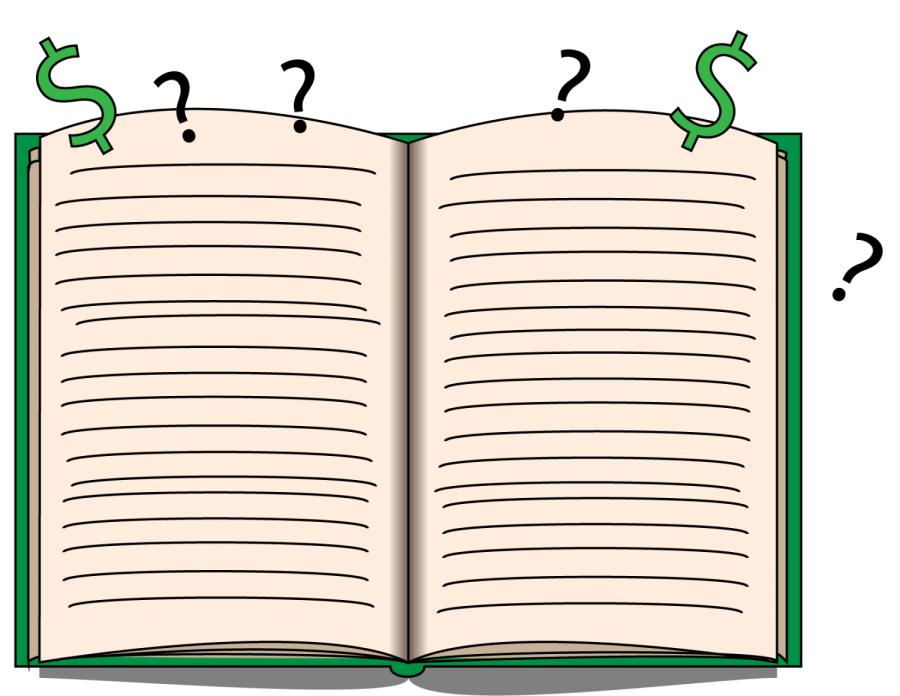Professors shouldn’t profit from students’ textbooks
April 14, 2021
How far can you trust the salesman who earns a commission from his wares? It depends, I suppose, on the salesman. Still, when we hear his claims of ‘best on the market’ or ‘top-of-the-line,’ it warrants hesitation. Is it as he claims or isn’t it?
What happens then, when the salesman is your professor and the wares are textbooks.
This isn’t a new question. In fact, in one high-profile instance, as of 2015, Harvard professor and author Gregory Mankiw had earned an estimated $42 million in royalties on his textbook “Principles of Economics” according to an article written in the Oregonian by two-time Pulitzer winner, Richard Read.
As consumers and as students, we have to ask ourselves if the resources we are required to purchase provides the best education or if their true purpose is to pad the bank accounts of those empowered by their lofty position?
Considering the vast amount of textbooks accessible in the public domain, such as openstax.org, for what reason is it necessary that we spend thousands of dollars every year on mass-produced books that have comparable solutions available for free?
Our gatekeepers, those who dictate whether we are fit to leave the confines of our collegiate careers only to work at Starbucks or Jamba Juice for the next half-a-decade, hold a responsibility to provide the best education possible without the prerequisite to learn the art of dumpster-diving just to eat a decent meal.
The question then becomes, how do we, as students, hold these purveyors of education accountable?
First, celebrate those professors who choose to utilize free, open-source materials. Positive reinforcement is a powerful tool. By highlighting those individuals who set their students up for success, we provide a guiding light for others to follow.
Second, speak out. Complain to the right people. Don’t gripe and moan about expensive books in the food court. Take your complaints to your professors, the school administration and even the secretary of education. In fact, according to public documents, in March of 2020, students filed a lawsuit against textbook publishers such as Cengage, Pearson, and McGraw-Hill and campus college chain bookstores for predatory practices resulting in higher course materials rates.
The results from this lawsuit are to-be-determined. However, the simple act of enacting a suit is a step towards positive change.
As for faculty, on behalf of the student body, let me say this: you cannot continue to make financial decisions for students. It is a gross injustice for you to mandate the purchase of textbooks over food, gas, rent, electricity and a dozen other necessary expenses that students furlough month after month. Instead, I challenge you to introduce a team of student-elected individuals who, alongside faculty, vote on course materials.
By including individuals who represent our community, as members of our community, you would elicit trust from the student body rather than suspicion when making decisions that affect students.
With all the coverage on student-loans and whether or not President Biden will provide some level of loan forgiveness, it is crucial to keep in mind why student loan amounts balloon to such extremes. It’s easy to dismiss $1000 a year on textbooks for the much grander and exorbitant tuition rates. However, the education system, much like time, is wibbly-wobbly, interweaving many corrupt systems.
Forgiving student loans, although necessary, does not uproot the underlying cause of massive student debt. One step we can take today is questioning the necessity of expenses with solutions that are free and accessible to anyone with an internet connection.
Education shouldn’t be an industry for profit at the expense of students. Education is a system that teaches empathy, enhancing human growth and potential. It’s about time we start treating it that way.



